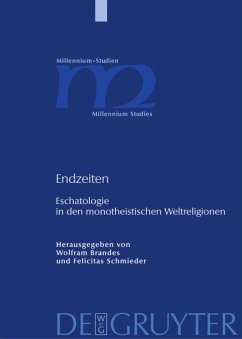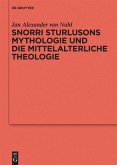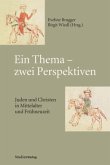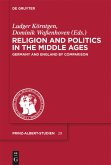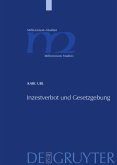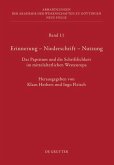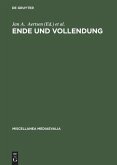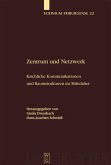In this volume, leading scholars examine the ideas of the last days of the world held in Islam, Christianity and Judaism in the Middle Ages and the Early Modern Age. They discuss the mutual influence of these ideas together with their intended and actual political effect at the time. They open up a significant source for political andintellectual history, because apocalyptic writings are always to be found among the powerful. Key Features: overview of the latest research findings, presented in the form of a handbook successful interdisciplinary dialogue particular focus on the political history and intellectual history of this epoch
Die Endzeitvorstellungen von Islam, Christentum und Judentum im Mittelalter und in der Frühen Neuzeit untersuchen führende Forscher in diesem Band. Sie diskutieren die gegenseitige Beeinflussung dieser Vorstellungen ebenso wie ihre zeitpolitisch intendierte und ihre tatsächliche Wirkung. Damit erschließen sie eine bedeutende politische und geistesgeschichtliche Quelle, denn die apokalyptischen Schriften finden sich stets im Umkreis der Mächtigen dieser Welt.
Pluspunkte:
handbuchartiger Überblick über die neuesten Forschungsergebnissegelungener interdisziplinärer Dialogbesonderer Fokus auf Politik- und Geistesgeschichte der Epoche
Die Endzeitvorstellungen von Islam, Christentum und Judentum im Mittelalter und in der Frühen Neuzeit untersuchen führende Forscher in diesem Band. Sie diskutieren die gegenseitige Beeinflussung dieser Vorstellungen ebenso wie ihre zeitpolitisch intendierte und ihre tatsächliche Wirkung. Damit erschließen sie eine bedeutende politische und geistesgeschichtliche Quelle, denn die apokalyptischen Schriften finden sich stets im Umkreis der Mächtigen dieser Welt.
Pluspunkte:
handbuchartiger Überblick über die neuesten Forschungsergebnissegelungener interdisziplinärer Dialogbesonderer Fokus auf Politik- und Geistesgeschichte der Epoche

